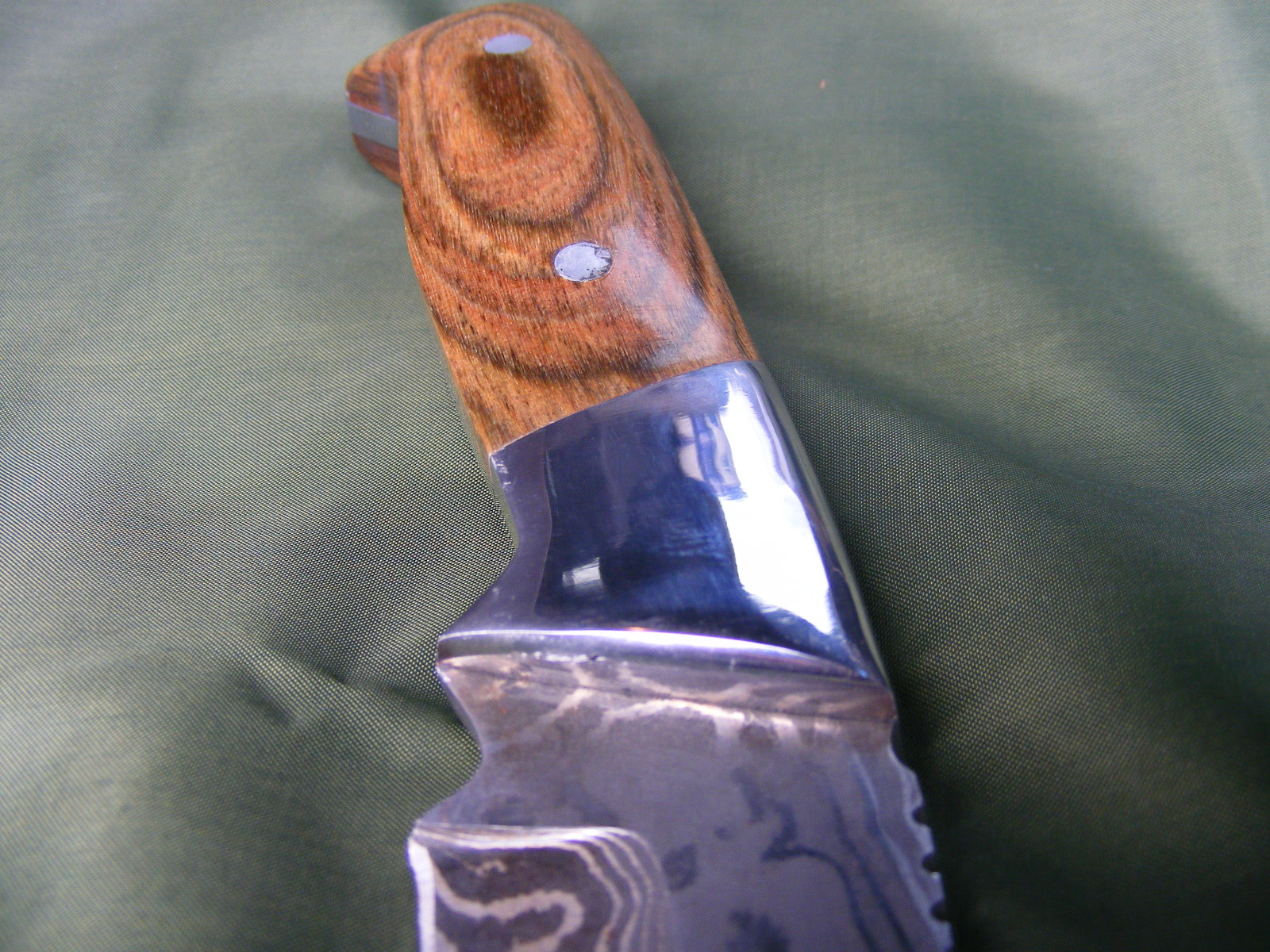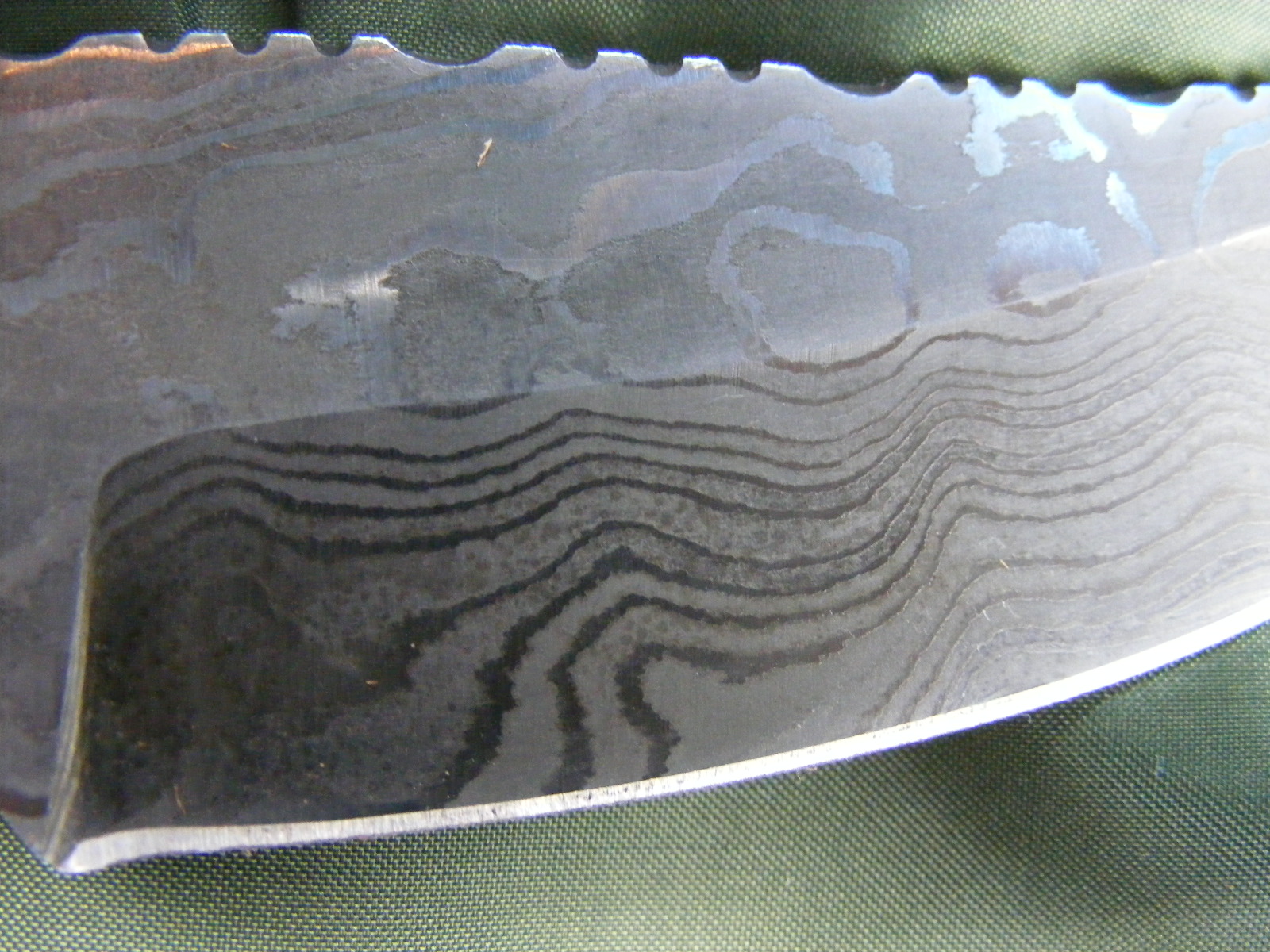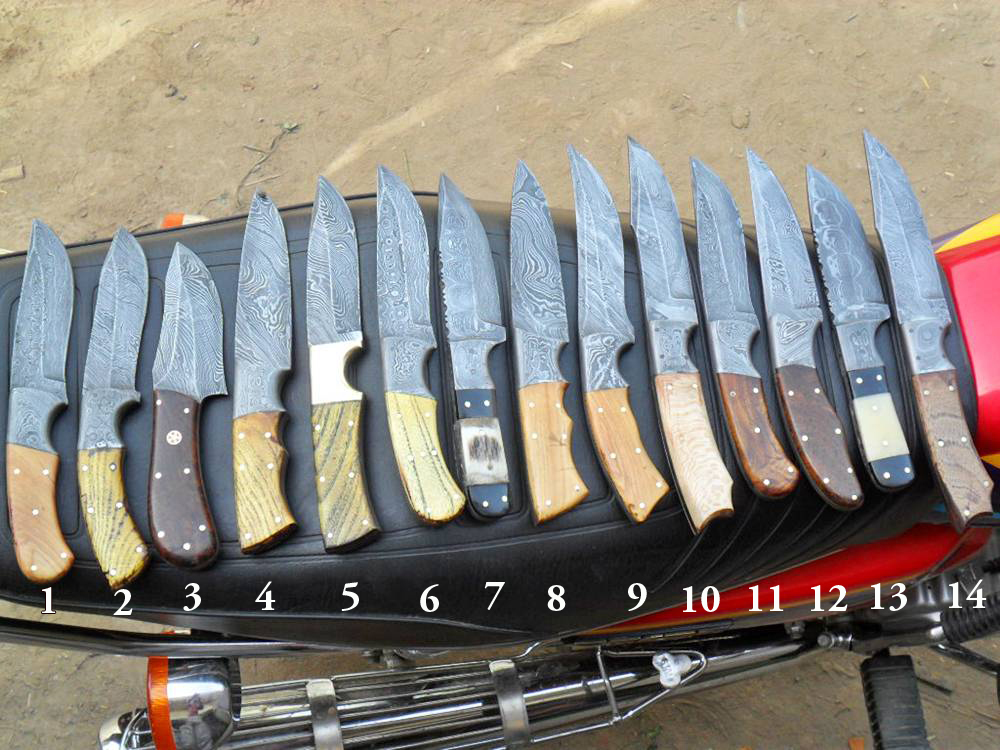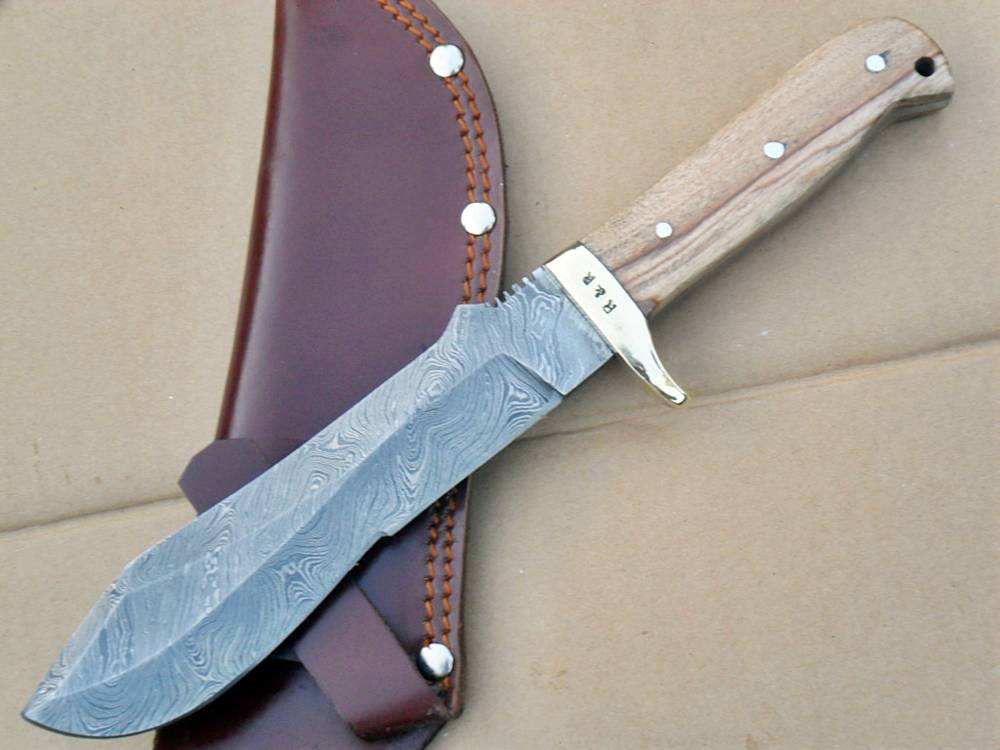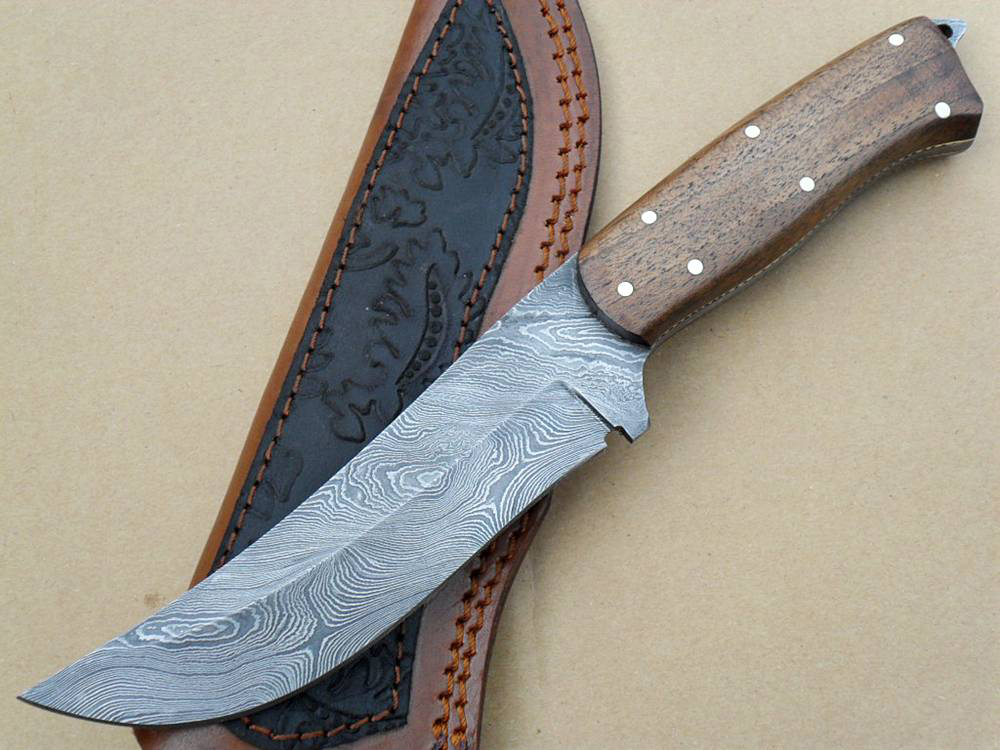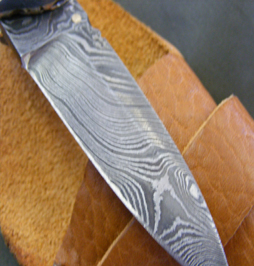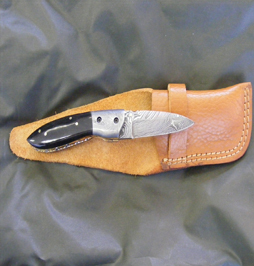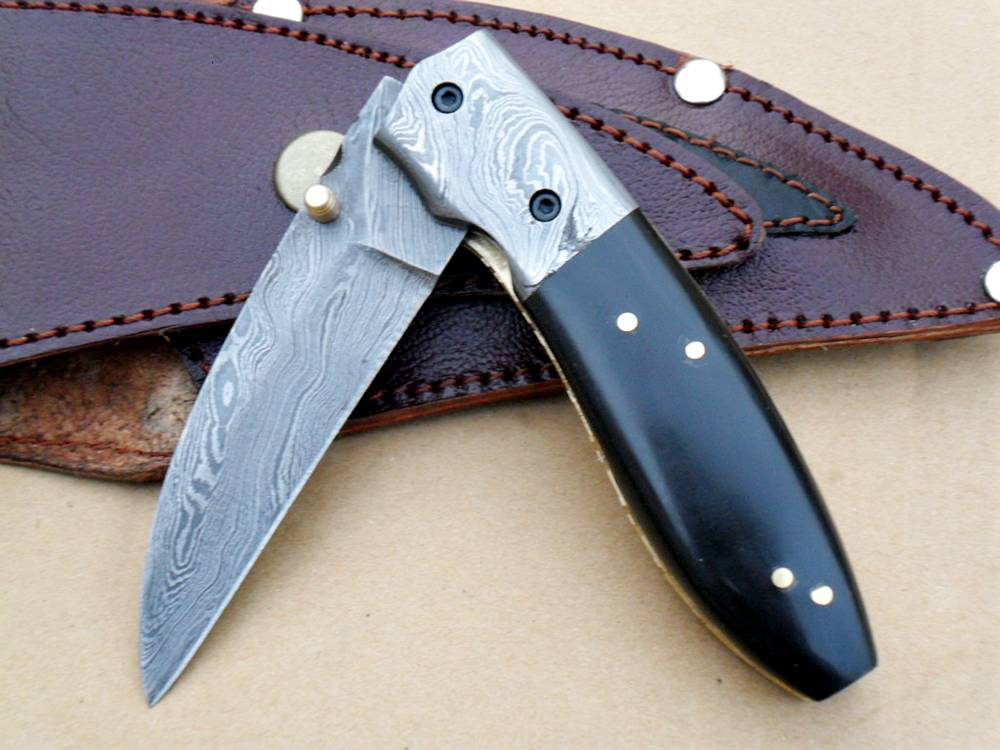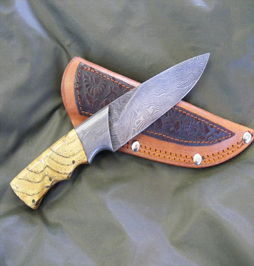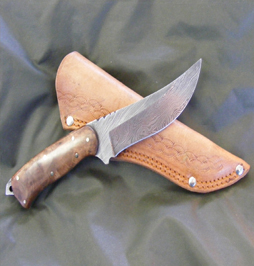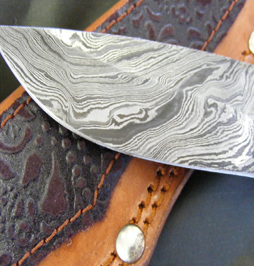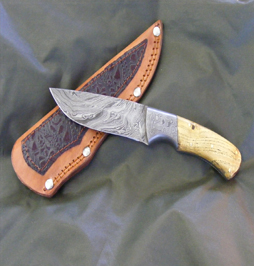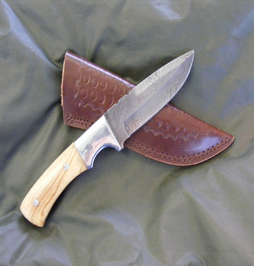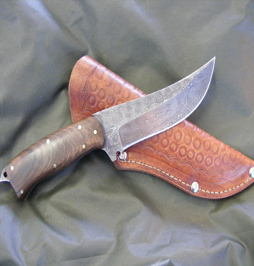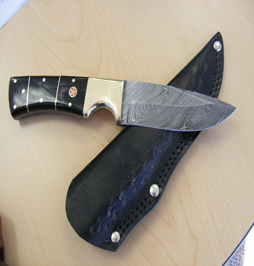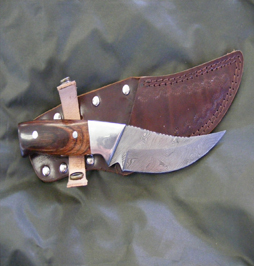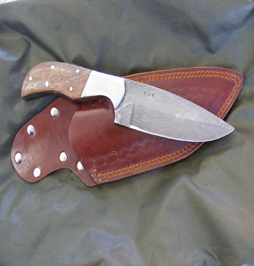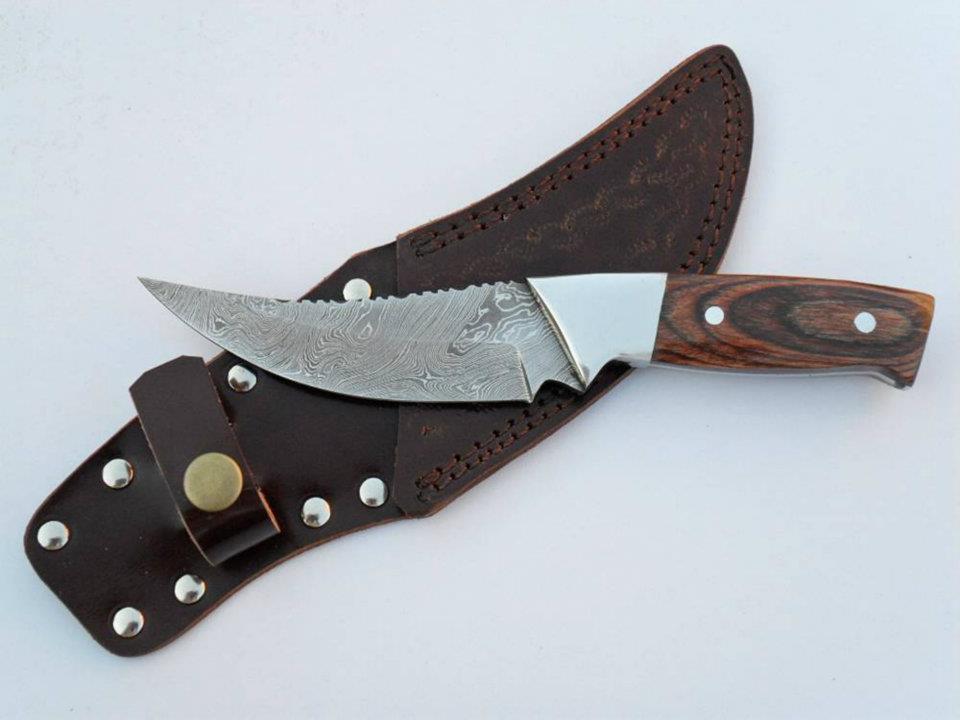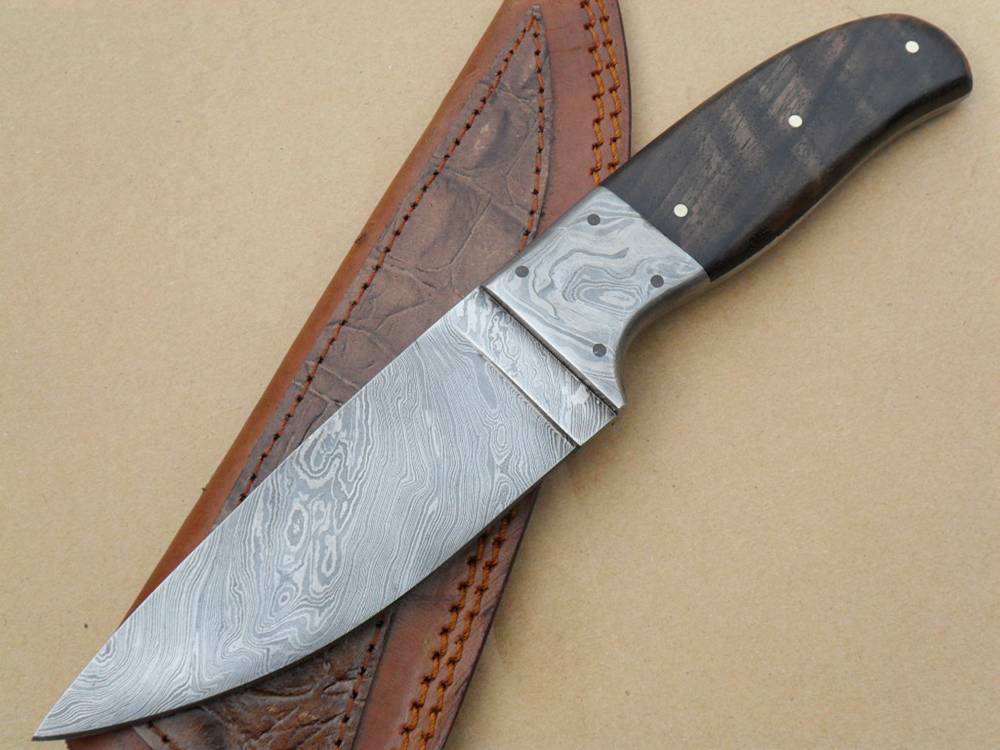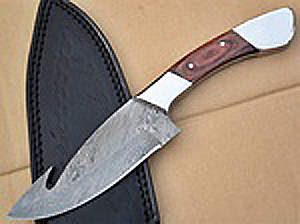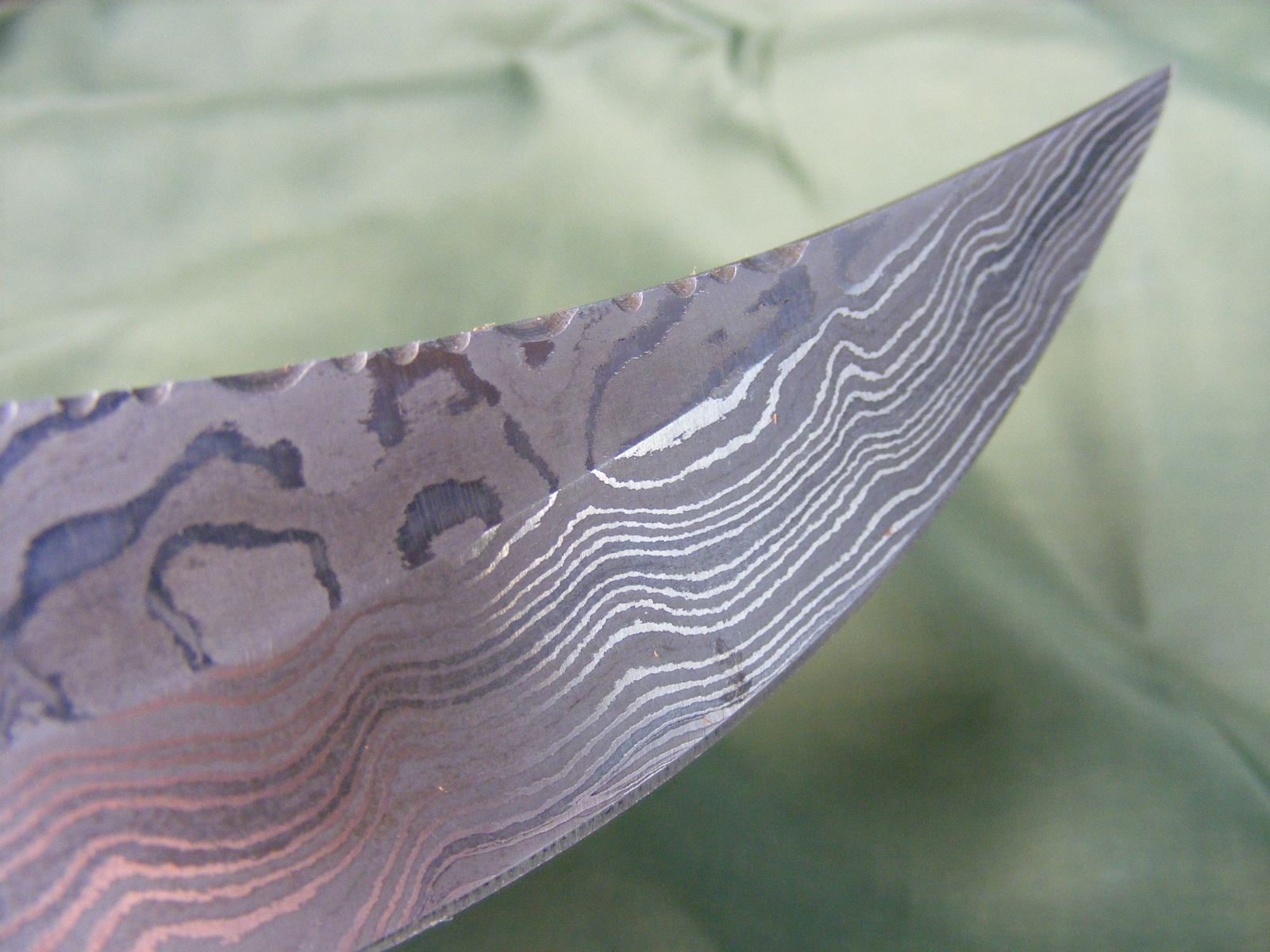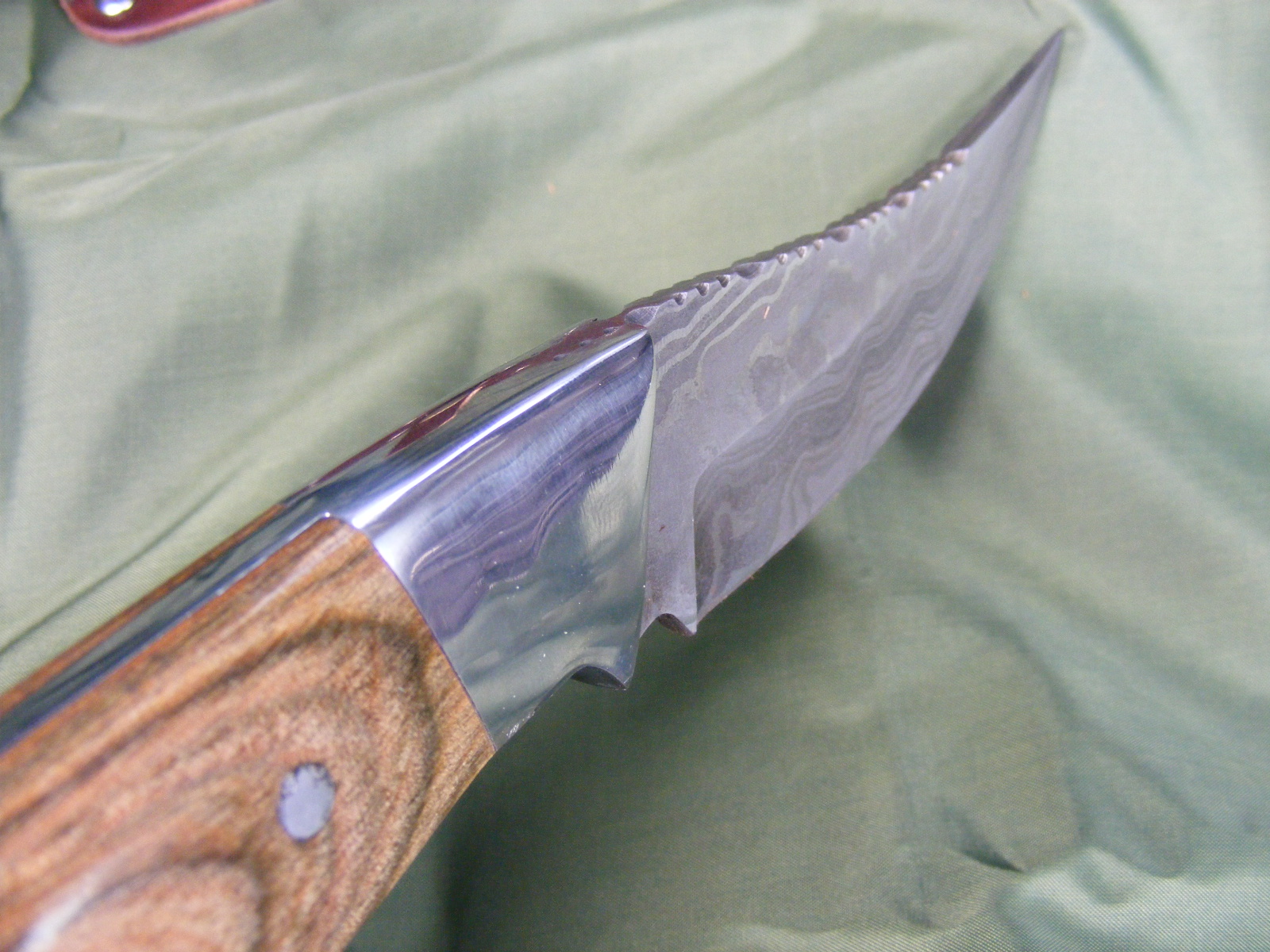

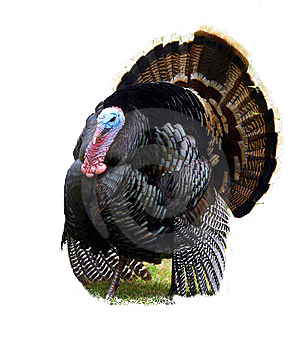
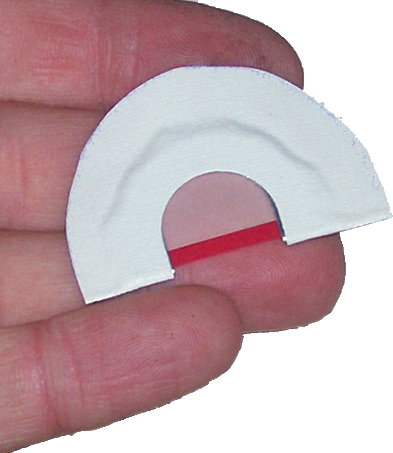


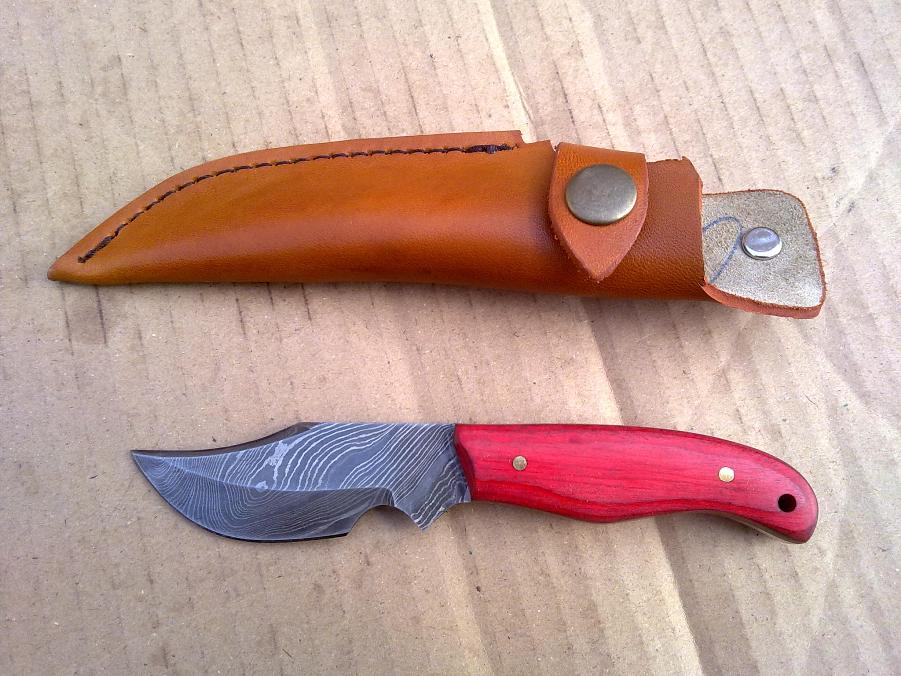
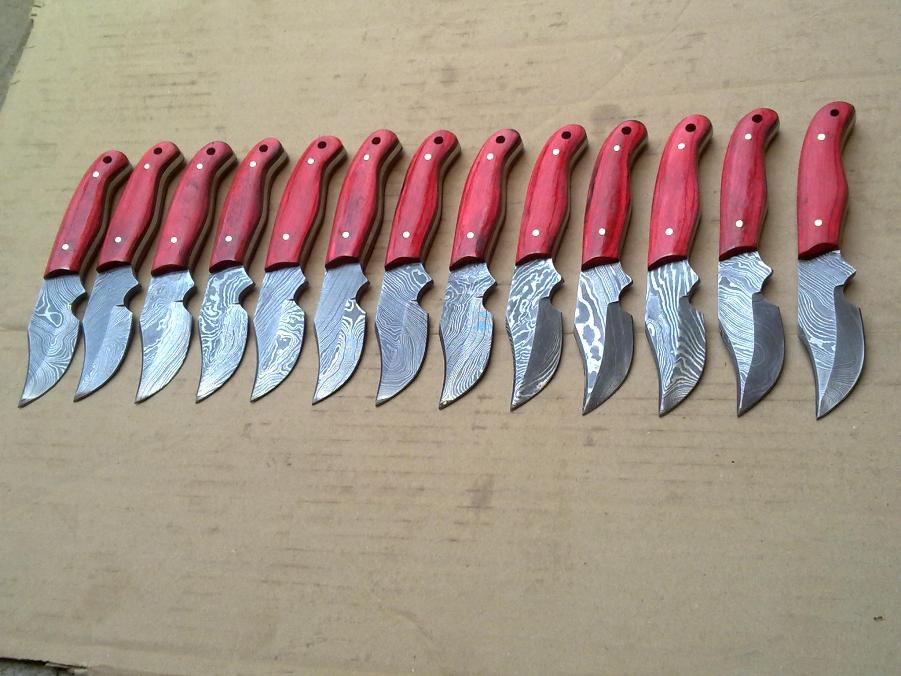
Special knife designed for the gutting and animal.
serious about hunting? 3" handle and 3" blade
made with Damascus Steel and Importd Pink Wood Handle.
Special Price $75.00 THis knife is just the right size for getting inside any animal and have the ability to move around easily to cut diaphragh and windpipe.
Close-up of a 16th century Iranian crucible forged Damascus steel sword
Damascus steel was a term used by several Western cultures from Medieval period onward to describe a type of steel used in swordmaking from about 300 BCE to 1700 CE. These swords are characterized by distinctive patterns of banding and mottling reminiscent of flowing water. Such blades were reputed to be not only tough and resistant to shattering, but capable of being honed to a sharp and resilient edge. Today, the term is used to describe steel that mimics the appearance and performance of Damascus steel, usually that which is produced by either crucible forging or pattern welding.
The original method of producing Damascus steel is not known. Due to differences in raw materials and manufacturing techniques, modern attempts to duplicate the metal have not been entirely successful. Despite this, several individuals in modern times have claimed that they have rediscovered the methods in which the original Damascus steel was produced.
The reputation and history of Damascus steel have given rise to many legends, such as the ability to cut through a rifle barrel or to cut a hair falling across the blade but no evidence exists to support such claims. A research team in Germany published a report in 2006 revealing nanowires and carbon nanotubes in a blade forged from Damascus steel. This finding was covered by National Geographic and the New York Times. Although modern steel outperforms these swords, microscopic chemical reactions in the production process may have made the blades extraordinary for their time. Some experts expect to discover such nanotubes in more relics as they are analyzed more closely.
Several theories on the origins of the term "Damascus steel" exist, but none of them may be confirmed definitively. Damascus may refer to:
A bladesmith from Damascus, ca. 1900
Historians such as Hobson, Sinopoli, and Juleff state that the original damascus was produced from ingots of wootz steel, which originated in India and Sri Lanka and later spread to Persia. From the 3rd century to the 17th century, India was shipping steel ingots to the Middle East for use in Damascus steel.
European researchers] have demonstrated that high quality swords with damask patterns were produced by various pattern welding techniques since at least the 3rd century BCE by the Celts and Germanic peoples.
Production of these patterned swords gradually declined, ceasing by around 1750, and the process was lost to metalsmiths. Several modern theories have ventured to explain this decline, including the breakdown of trade routes to supply the needed metals, the lack of trace impurities in the metals, the possible loss of knowledge on the crafting techniques through secrecy and lack of transmission, or a combination of all the above.
The raw material for producing the original Damascus steel is believed to be wootz imported from India. Due to the distance of trade for this raw material, a sufficiently lengthy disruption of the trade routes could have ended the production of Damascus steel and eventually led to the loss of the technique. As well, the need for key trace impurities of tungsten or vanadium within the materials needed for production of the steel may be absent if this material was acquired from different production regions or smelted from ores lacking these key trace elements. The technique for controlled thermal cycling after the initial forging at a specific temperature could also have been lost, thereby preventing the final damask pattern in the steel from occurring.
The discovery of carbon nanotubes in the Damascus steel's composition supports this hypothesis, since the precipitation of carbon nanotubes likely resulted from a specific process that may be difficult to replicate should the production technique or raw materials used be significantly altered.
